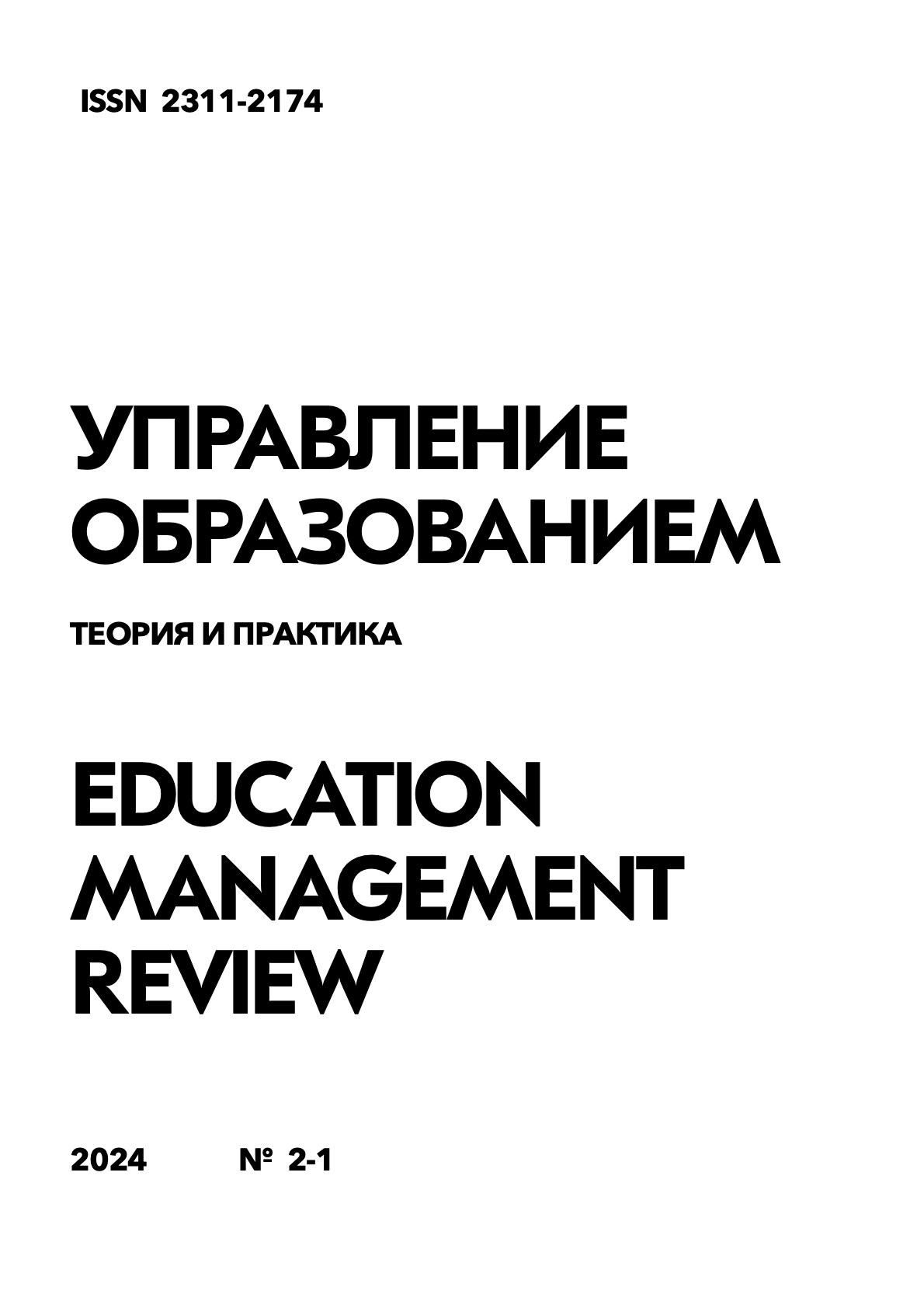The main problems of supporting the adaptation of foreign students to the socio-cultural environment of the university
DOI:
https://doi.org/10.25726/s8187-6499-5603-oKeywords:
international students, adaptation, socio-cultural environment, internationalization of education, language barrier, cultural shock, educational systems, social contacts, adaptation programsAbstract
The article examines the main problems that arise in the process of adaptation of foreign students to the socio-cultural environment of Russian universities. The relevance of the research is due to the increasing internationalization of higher education and the need to create favorable conditions for the successful integration of foreign students into a new educational and cultural environment. The purpose of the work is to identify the key factors hindering the effective adaptation of international students and to develop recommendations for overcoming them. The research materials and methods include an analysis of the scientific literature on the problems of adaptation of foreign students, as well as empirical data obtained during the survey and interviewing of 150 foreign students from 20 countries studying at 5 Russian universities. Methods of statistical analysis, content analysis and thematic coding were used to process the results. The results of the study show that the main problems faced by foreign students in the process of adaptation are the language barrier (87% of respondents noted), differences in educational systems (75%), difficulties in establishing social contacts with local students (68%), cultural shock (62%) and everyday difficulties (58%). It was revealed that students from Asian and African countries experience more serious adaptation difficulties compared to representatives of European countries. It has been established that the availability of special adaptation programs and activities at the university helps to reduce the stress level of foreign students by 30-40%. Recommendations are proposed to improve the system of support for the adaptation of foreign students, including the organization of language courses, cross-cultural trainings, academic and social support programs, as well as the involvement of Russian students in the process of integration of foreign students. The results of the study can be used to develop effective strategies for the adaptation of foreign students in Russian universities.
References
Абрамова И.В., Неволина О.А. Организационные условия адаптации студентов первого курса в условиях дистанционного обучения// Проблемы современного образования. 2022. № 4. С. 242- 255.
Алешковский И.А., Гаспаришвили А.Т, Крухмалева О.В., Нарбут Н.П., Савина Н.Е. Стартовые позиции абитуриентов вузов и особенности их дальнейшего обучения: социологический анализ // Вестник РУДН. Социология. 2022. Т. 22. № 3. С. 557-571.
Береговая О.А, Лопатина С.С., Отургашева Н.В. Барьеры социокультурной адаптации иностранных студентов в российских вузах // Перспективы науки и образования. 2019. № 2. С. 108-118.
Бессонов П.П., Бессонова Н.Г., Бессонова В.П., Сыроватский А.П. Особенности адаптации иностранных студентов в вузах Республики Саха (Якутия) // Современные наукоемкие технологии. 2022. № 8. С. 120-124.
Ваулина Т.А., Сахарова К.Н. Организационные аспекты адаптации иностранных студентов, обучающихся в российском вузе // Вестник Томского государственного университета. 2015. № 400. С. 267-272.
Дамадаева А.С., Бехоева А.А. Проблемы и возможности реализации инклюзивного образования в современном вузе // Национальный психологический журнал. 2019. Т. 3. № 3(35). С. 125- 133.
Дмитрусенко И.Н, Маркусь А.М. Анализ трудностей во внеучебной деятельности иностранных студентов в российской образовательной среде // Вестник Южно-Уральского государственного университета. Серия: Образование. Педагогические науки. 2022. Т. 14. № 3. С. 96-111.
Киселева Е.В., Киселев Н.Н. Адаптация студентов в высшем учебном заведении: анализ затруднений, поиск ресурсов // Сибирский педагогический журнал. 2019. № 2. С. 57-63.
Кошелева Ю.П., Прутько Г.В. Влияние внеучебной проектной деятельности на социально-психологическую адаптацию студентов вуза // Вестник Московского государственного лингвистического университета. Образование и педагогические науки. 2020. № 3(836). С. 206-221.
Мамаева И.А. Двумерная модель наставничества в негуманитарном вузе // Агро-инженерия. 2020. № 5(99). С. 71-77.
Овчинникова М.В. Проблемы академической адаптации китайских студентов в российских вузах и пути их решения // Вестник Тульского государственного университета. Серия: Современные образовательные технологии в преподавании естественнонаучных дисциплин. 2020. № 1(19). С. 18-21.
Олейник Е.В., Муталова Д.А., Безенкова Т.А., Мананникова А.В. Изучение проблемы адаптации студентов вуза в условиях самоизоляции к on-line обучению с применением дистанционных образовательных технологий // Современное педагогическое образование. 2020. № 5. С. 69-72.
Оухейш Таха Х.М. Адаптация иностранных учащихся в условиях дистанционного образования // Известия Тульского государственного университета. Гуманитарные науки. 2022. № 3. С. 144-150.
Токтарова В.И., Федорова С.Н. Адаптация студентов к обучению в условиях электронной информационно-образовательной среды вуза // Вестник Марийского государственного университета. 2019. Т. 13. № 3. С. 383-390.
Урванцева Н.Г. Образовательная среда вуза в социокультурной адаптации иностранных студентов // Педагогика. Вопросы теории и практики. 2019. Т. 4. Вып. 3. C. 59-63.




